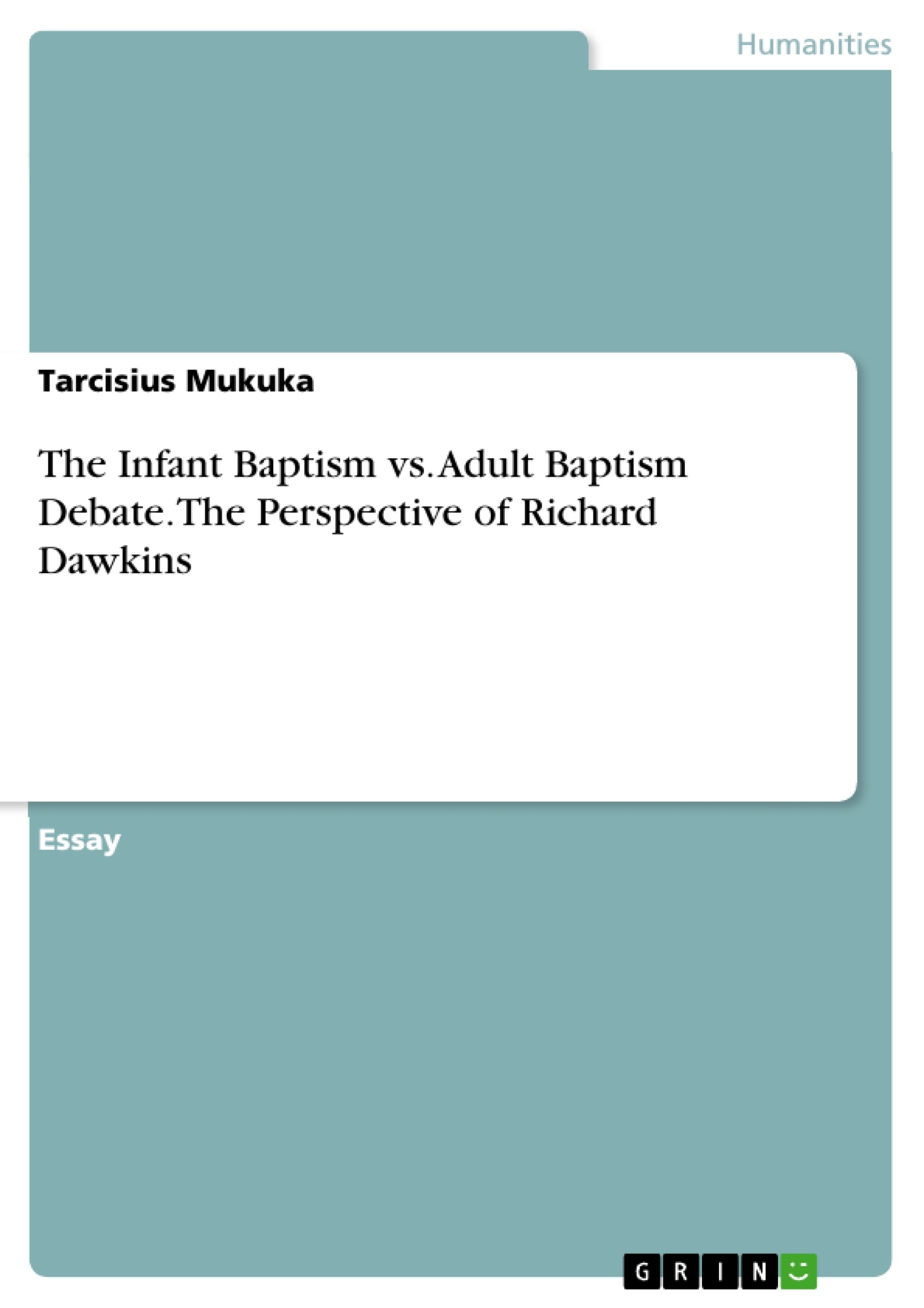This article is a foray into systematic theology. Who are we? Or better, where we created perfect or imperfect, complete or incomplete, graced or un-graced? As a Catholic, baptised 2 weeks after birth, I came to find out that the main reason I was baptised was so that original sin could be removed. That sounded like I was born with some congenital virus for which I had to wait for the vaccine of baptism. After many years of studying and teaching theology I came to the conclusion that I was created incomplete but capable of evolving. I was born into an incomplete world still revolving. It is through the dual lenses of what I call essenceless creation and theistic existentialism, I wade into the infant baptism versus adult baptism debate. I argue that this is a non-controversy. At whatever age you sign up or your parents sign you up in a faith community matters not as what you make of that membership. I beg to differ with prominent fellow Catholic, Mary McAleese, former president of Ireland who argued that infant baptism was equivalent to “infant conscripts who are held to lifelong obligations of obedience.” Original sin is not helpful in the infant baptism versus adult baptism debate. It gives fuel to Richard Dawkins’ god, if he had one, but instead it is more accurate to describe this as his caricature of the Jewish god, a god who is jealous, petty, unjust, unforgiving control-freak, vindictive, bloodthirsty ethnic cleanser, misogynistic, homophobic, racist, infanticidal, genocidal, filicidal, pestilential, megalomaniacal, sadomasochistic, capriciously malevolent, a god who would demand his pound of flesh from an innocent child for a sin committed by Adam and Eve.
Table of Contents
- Introduction
- A Little Lesson in History from the Bible
- So, Why Baptise Children Today?
- What would Richard Dawkins say about Infant Baptism?
- Infant Baptism and Human Rights
- Infant Baptism Versus Adult Baptism and the Newer Denominations
- Why Catholics continue to baptise babies
- Help from Essenceless Creation and Theistic Existentialism
- Let's keep original sin out of Baptism
- Conclusion
Objectives and Key Themes
This text explores the controversial practice of infant baptism within the Catholic Church, examining historical and theological arguments for and against the practice. The author, a Catholic theologian, presents a nuanced perspective that challenges traditional justifications for infant baptism while exploring alternative viewpoints.
- The historical development of infant baptism in relation to biblical texts and early Christian practices.
- The theological arguments surrounding original sin and its impact on the justification for infant baptism.
- The author's critique of traditional justifications for infant baptism and his proposal of alternative perspectives.
- The role of Richard Dawkins and his critique of religious practices, specifically as it relates to infant baptism.
- The potential implications of infant baptism on human rights.
Chapter Summaries
- Introduction: The author introduces the debate surrounding infant baptism, highlighting the strong opposition from proponents of adult baptism. He expresses his own mixed feelings towards infant baptism, acknowledging the influence of Augustine of Hippo and the concept of original sin. However, he proposes an alternative perspective based on "essenceless creation" and "theistic existentialism."
- A Little Lesson in History from the Bible: The author examines the historical development of baptism, arguing that the practice emerged after the New Testament period. He explores biblical allusions to baptism but emphasizes the lack of explicit directives regarding infant or adult baptism. The author suggests that the silence on infant baptism in the Bible is a consequence of the early church's focus on adult discipleship.
- So, Why Baptise Children Today?: The author analyzes various arguments for infant baptism, including the analogy of circumcision and the notion of hereditary grace. He critiques the reliance on the concept of original sin as a justification for infant baptism, arguing that it is a problematic and outdated understanding of human nature. The author also discusses the role of Psalm 51 and its interpretation in relation to infant sinfulness.
- What would Richard Dawkins say about Infant Baptism?: The author speculates on the stance Richard Dawkins might take on infant baptism, referencing his critiques of God in "The God Delusion." He acknowledges Dawkins' opposition to forcing children into religious practices, particularly through catechism or baptism.
Keywords
The central focus of this text lies in the debate surrounding infant baptism within the Catholic Church. Key themes include the historical development of baptism, theological justifications for infant baptism, the concept of original sin, alternative perspectives on human nature, and the role of Richard Dawkins' critique of religious practices. The author explores the intricacies of these themes, presenting a nuanced analysis of the complex and often contentious issue of infant baptism.
- Quote paper
- Dr. Tarcisius Mukuka (Author), 2020, The Infant Baptism vs. Adult Baptism Debate. The Perspective of Richard Dawkins, Munich, GRIN Verlag, https://www.grin.com/document/976023




